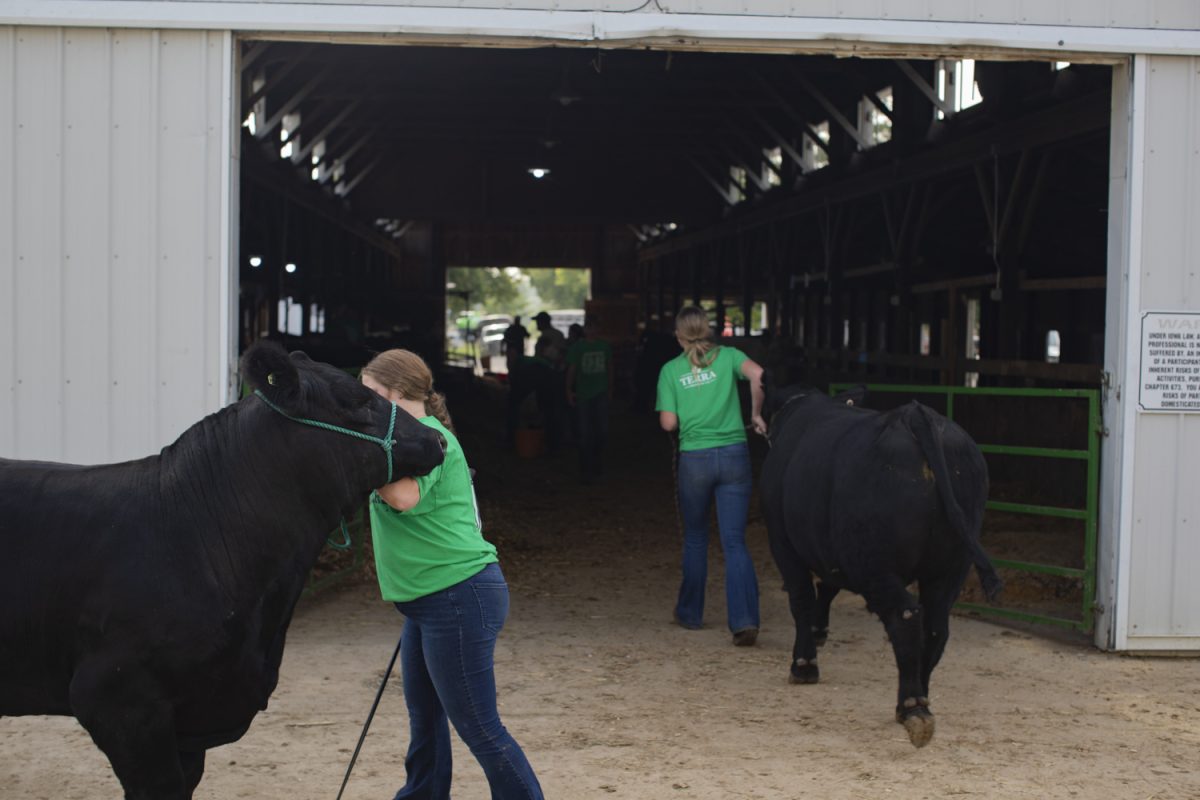Avian-influenza outbreak pushes up egg prices across the state.
By Ali Krogman
[email protected]
The saying “don’t put all your eggs in one basket” rings true more than ever for Iowan farmers and consumers after the recent avian-flu crisis.
The outbreak cost the nation’s largest egg-producing state approximately 8,500 jobs and cut the state’s population of 77 million birds in half, according to a recent study by the Iowa Farm Bureau.
Johnson County hasn’t suffered job loss and bird depopulation at the level of the rest of the state and region. However, egg producers, sellers, and consumers in the area are still feeling the effects.
“We buy eggs from a local producer, and for the first time, eggs off the shelf are more expensive than what the producer sold us,” said Russell Meade, a farmer and past president of the Johnson County Farm Bureau.
Danan Block, the grocery manager for the Bread Garden, 225 S. Linn St., said he has seen the store’s egg prices double and egg sales decrease.
“Eggs were originally at $1.99 and now are at $3.49,” Block said. “Both wholesale and local prices have gone up.”
According to the Iowa Farm Bureau’s study, egg prices on average have been as high as $2.57 per dozen, double what they were before the outbreak.
Maro Ibarburu, an associate scientist and business analyst for the Egg Industry Center at Iowa State University, said prices for eggs are on the rise in Iowa and neighboring states.
“Egg prices in the Midwest have increased 66 percent since July 2014 as a result of the much lower supply of birds and eggs,” he said.
Block said nationally distributed egg prices have increased more than locally sourced eggs.
Local poultry farmers are still taking precautions.
Doug Darrow, whose laying hens produce 300 to 500 eggs a day on his farm in Oxford, said the avian-flu has not reached his farm or the neighboring area, but he still has an plan in place in case it does.
“We limit our birds’ contact to outside sources and potential carriers, like Canadian geese,” Darrow said. “I’m aware of it, but I’m not thinking it’s an issue.”
Darrow said his farm is still trying to keep the cost of eggs to consumers at the best price they can.
Dave Miller, the director of research and commodity services for the Iowa Farm Bureau, said in an press release the high prices aren’t likely to decrease anytime soon.
“Egg prices are likely to peak out this summer, but the ‘elevated’ price for eggs is likely to linger for a minimum of 12 months and could last for two to three years,” he said in the release. “Recovery from this outbreak, which devastated Iowa egg and poultry farms, will not be swift.”
Meade said the egg-farming community realizes the significance of this outbreak.
“This is a wake-up call to continue to look at food security in our country,” he said. “We haven’t had many large-scale disease issues that made such an impact in just one industry.”
Meade noted it would be a learning process on how to restock poultry producers after such a devastating loss.
“We’ll have to continue to monitor our food security and make sure farmers are up to date on the best way to keep the food system safe,” he said.







